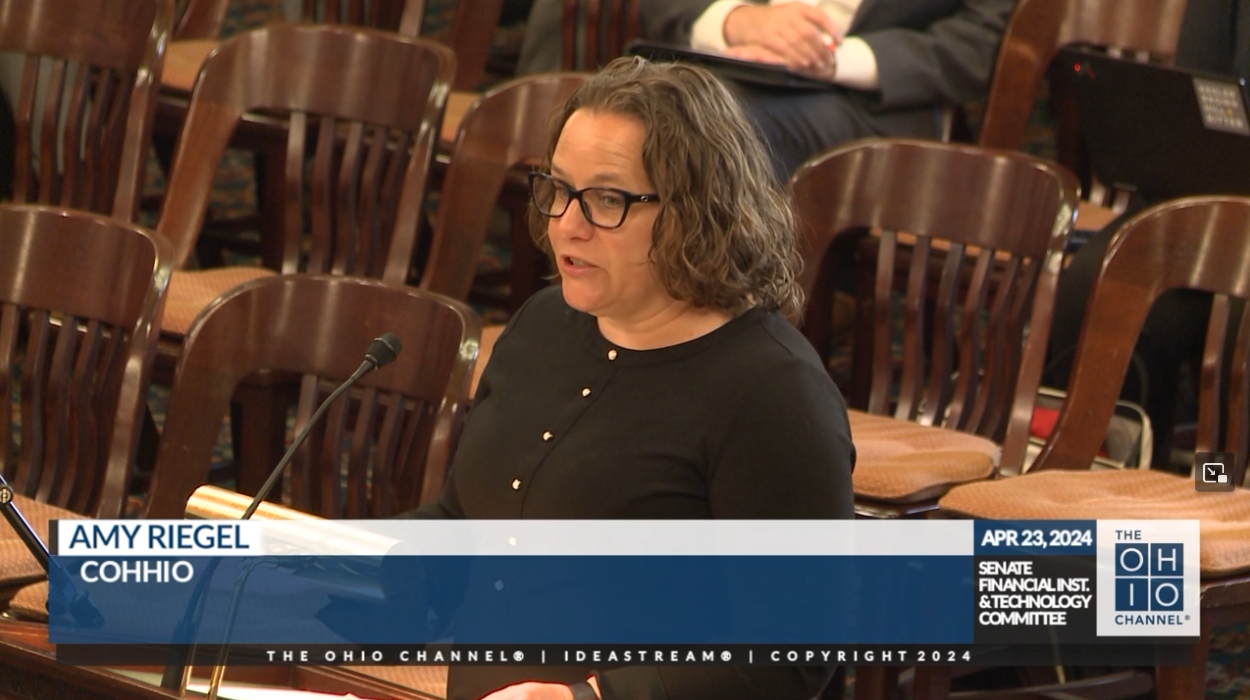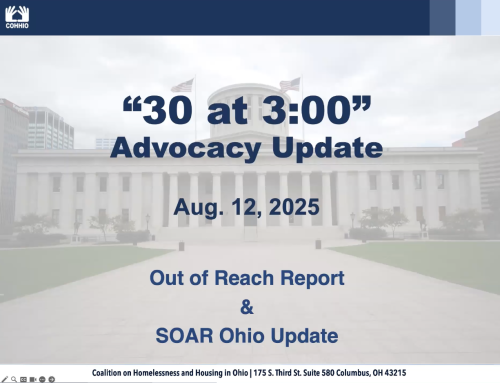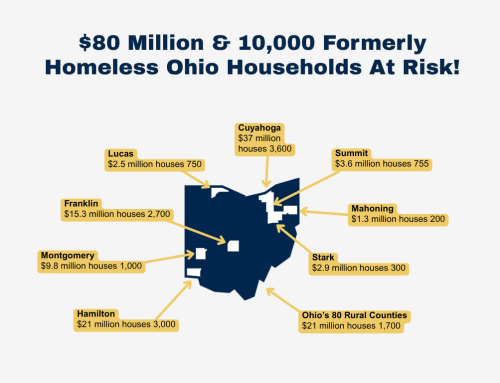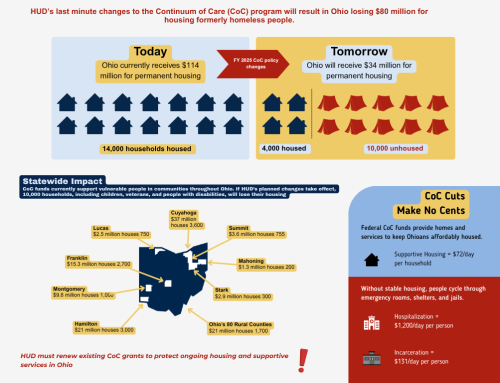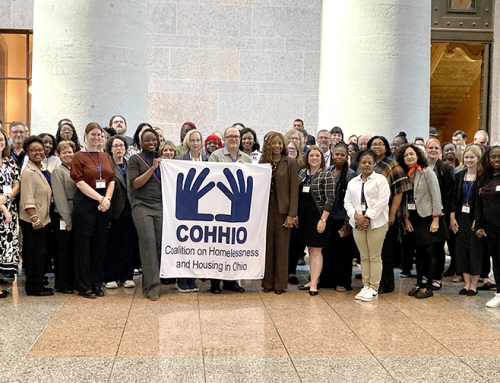The Senate Financial Institutions & Technology Committee recently advanced legislation that could undermine revenue flowing into the Ohio Housing Trust Fund. COHHIO Executive Director Amy Riegel told committee members that Senate Bill 94 opens the door to future raids of the state’s housing and homelessness resources at the same time the Senate is considering ways to address Ohio’s affordable housing crisis. COHHIO will work to maintain the equal footing of county recording fees and Housing Trust Fund fees as the bill moves through the Senate and House. (Committee video – starts at 12:39)
Testimony before the Senate Financial Institutions & Technology Committee
Amy Riegel, Executive Director
April 23, 2024
Senate Bill 94 – Opponent
Chairman Wilson, Vice Chair Hackett, Ranking Member Smith, and members of the Senate Financial Institutions Committee, thank you for the opportunity to testify in opposition to Senate Bill 94.
While I respect the goal behind this bill, I stand before you today in opposition for one key reason: Passing SB 94 in its current form runs counter to the Senate’s ongoing efforts to address Ohio’s affordable housing crisis because this legislation undermines the Ohio Housing Trust Fund, the primary source of state funding for local homelessness, home repair and housing development programs.
The Ohio Housing Trust Fund helps address many of the housing challenges you hear from your constituents every day – families who can’t find an affordable place to live, seniors who can’t afford to maintain their homes, tenants who are facing eviction, and people who are struggling to escape homelessness.
For more than 20 years, state law has divided fee revenue collected by county recorders equally between the Ohio Housing Trust Fund and the counties. This partnership generates millions of dollars each year to improve the lives of those in your community and mine. Unfortunately, Senate Bill 94 would increase fee revenue for county recorders to digitize documents related to housing, but not for housing.
It makes no sense to upset the historic 50-50 division of revenue between housing documents and actual housing at a time when Ohio is experiencing a dramatic spike in housing insecurity. Housing costs have skyrocketed, evictions have returned to pre-pandemic levels, and homelessness shot up 7% in one year. Last week, the Senate Select Committee on Housing released 23 recommendations to address the housing shortage in our state. Shortchanging the Ohio Housing Trust Fund will make it harder to realize the progress we all know we must now make. It is a step backwards.
You may be wondering: why is maintaining this precedent so important? Recall, the legislature created the Ohio Housing Trust Fund in response to voters’ overwhelming approval of a 1990 constitutional amendment to make housing a public purpose that can be supported through government action. Three separate study committees all came to the same conclusion: fee revenue collected by recorders should be divided 50%-50% between the counties and the Ohio Housing Trust Fund. That proposal garnered consensus and was finally adopted through the 2003 budget bill.
Ever since then, half of the money collected by county recorders stays with the counties, and the other half helps fund local housing programs for children, seniors, veterans, domestic violence survivors, people with disabilities, and families who struggle to keep a roof over their heads.
There have been several unsuccessful attempts to raid the Ohio Housing Trust Fund over the years. While we appreciate that Senate Bill 94 does not seek to reduce funding that flows into it, we oppose this legislation because it abandons this precedent on how to fund housing programs. This will make it easier for future General Assemblies to divert funding away from the Ohio Housing Trust Fund.
The solution is simple: Amend SB 94 to maintain the 50-50 division of fee revenue between the counties and the Ohio Housing Trust Fund. This would mean that any time the county chooses to levy a document fee for modernization, an identical amount will also be charged to send additional resources to the Ohio Housing Trust Fund. This will address the county recorders’ technology needs while fairly delivering more critical resources to homelessness and housing programs in your communities.
The scale of today’s housing crisis dwarfs the resources that are currently available. Ensuring the OHTF benefits equally from this proposed fee modernization legislation would give the state more ammunition to address housing insecurity in your district.
Thank you for hearing our testimony. I would be happy to answer any questions you may have.
